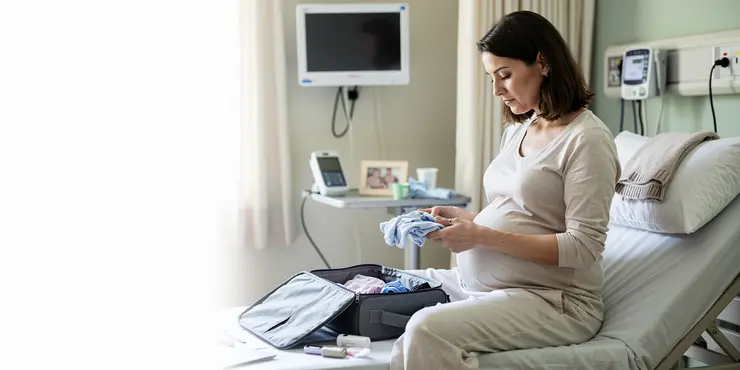
Find Help
More Items From Ergsy search
-
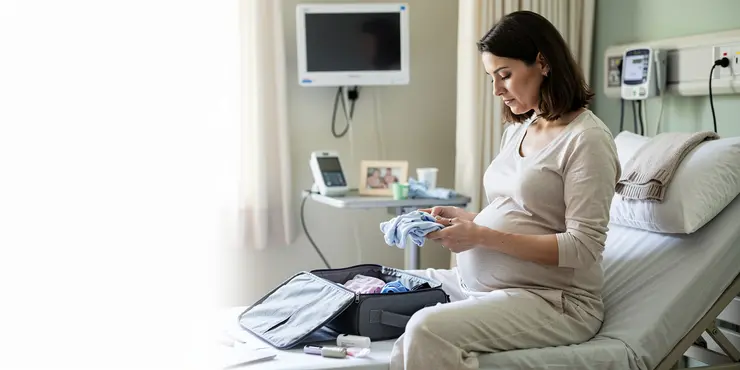
How should I prepare for a C-section?
Relevance: 100%
-
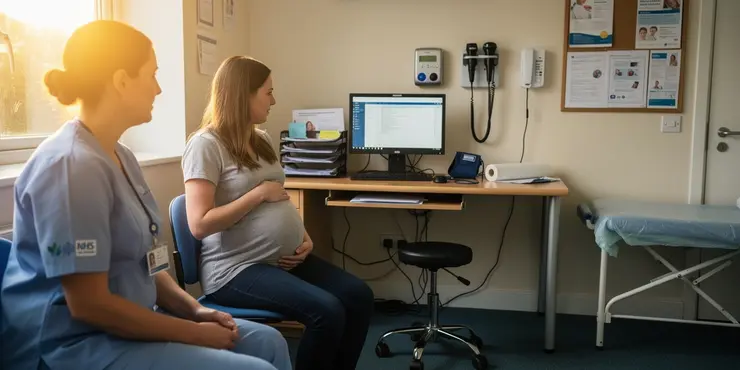
Is a C-section a common procedure in the UK?
Relevance: 69%
-

Will I be awake during a C-section?
Relevance: 68%
-

What are the risks associated with a C-section?
Relevance: 66%
-
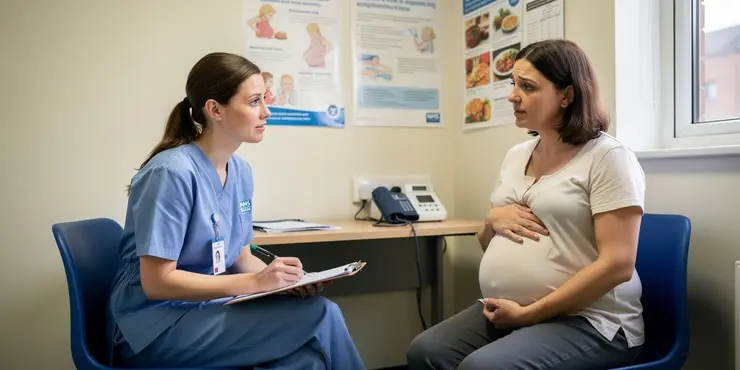
Are there any dietary restrictions before a C-section?
Relevance: 65%
-

How long will I stay in hospital after a C-section?
Relevance: 65%
-

Can my partner be present during the C-section?
Relevance: 61%
-

How can I manage pain after a C-section?
Relevance: 49%
-
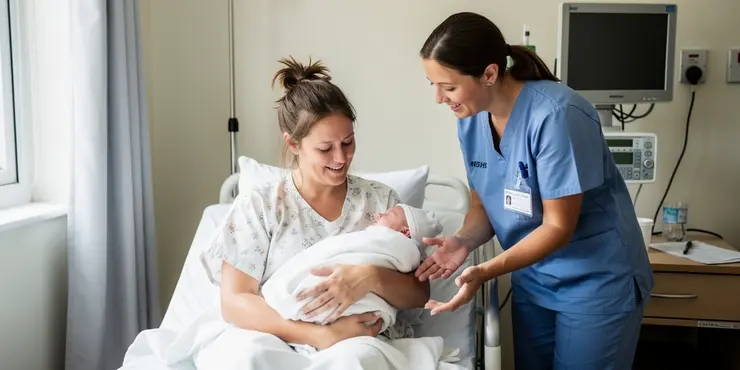
What is the recovery process like after a C-section?
Relevance: 40%
-

Your Caesarean birth
Relevance: 39%
-

How do I prepare for a mammogram?
Relevance: 39%
-
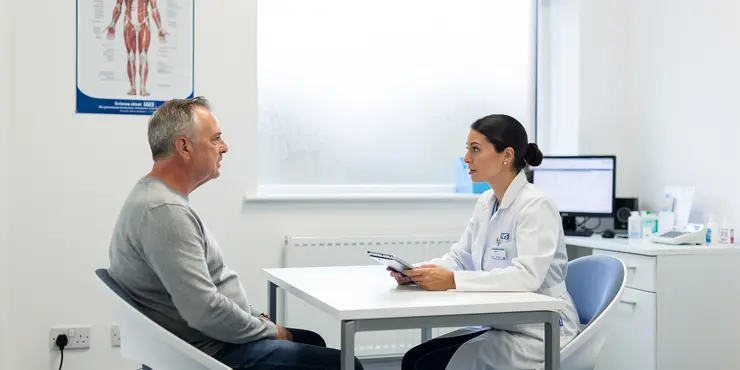
How should I prepare for a facelift?
Relevance: 37%
-

Can exercises help with labor preparation?
Relevance: 37%
-
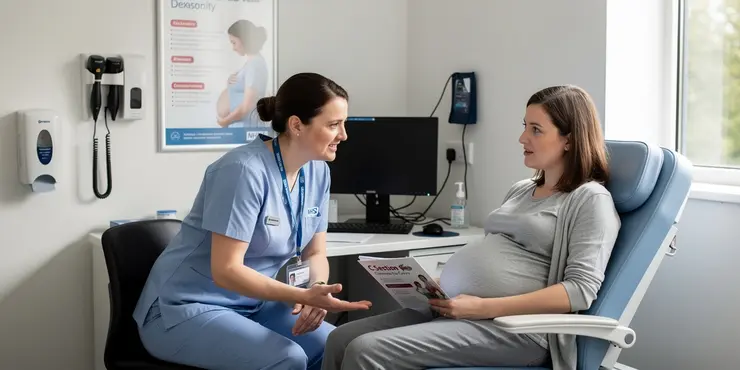
Why might a Caesarean birth be necessary?
Relevance: 36%
-

How do I prepare for a tribunal hearing?
Relevance: 36%
-

Can I have a natural birth after a Caesarean section?
Relevance: 35%
-
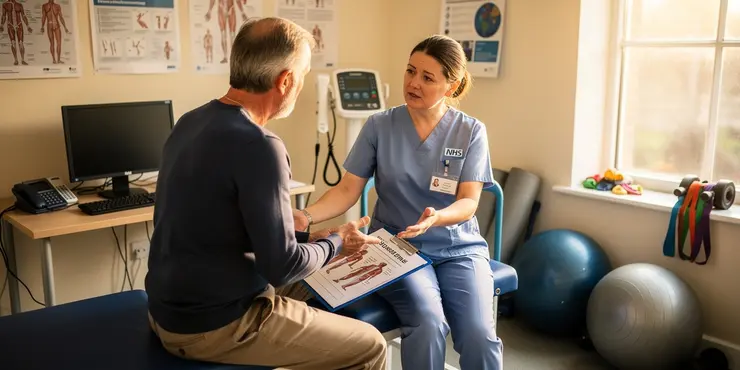
How do I prepare for hip replacement surgery?
Relevance: 34%
-
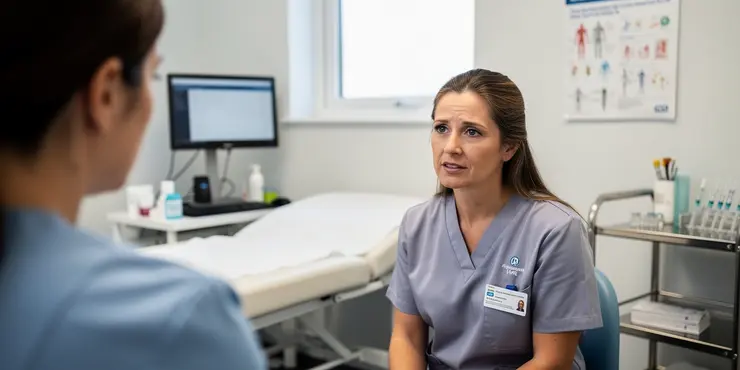
How should I prepare for a Botox appointment?
Relevance: 34%
-
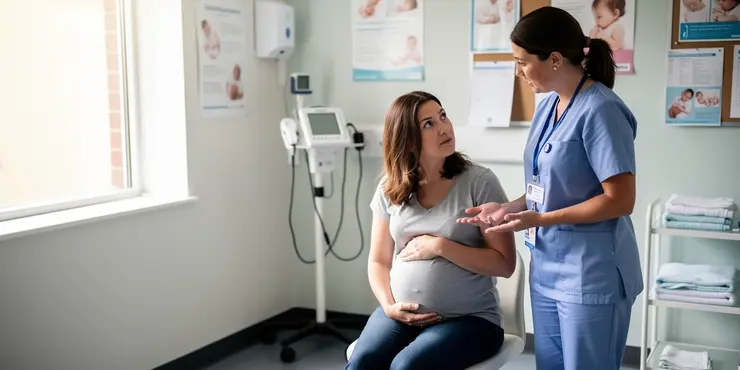
What is a Caesarean birth?
Relevance: 33%
-

How can I prepare for my first Hyrox competition?
Relevance: 32%
-

How can I prepare for the DVSA Theory Test?
Relevance: 32%
-

How soon should I prepare for the 2026 tax changes?
Relevance: 32%
-

Crown Court - Preparing to come to court
Relevance: 32%
-

How long does it take to recover from a Caesarean birth?
Relevance: 32%
-
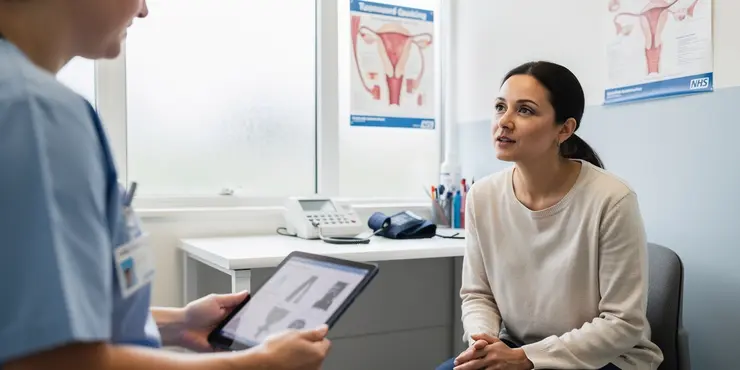
How should I prepare for a womb lining test?
Relevance: 32%
-

How should I prepare for a hair transplant in Turkey?
Relevance: 31%
-

UK Adoption Journey | What we did to prepare | Stage One Update
Relevance: 30%
-
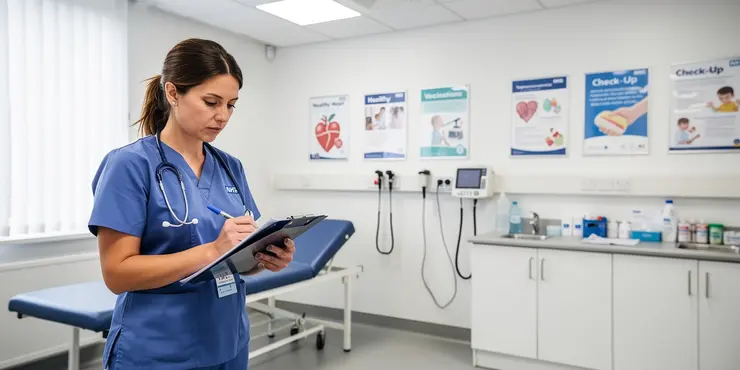
NHS Winter Preparedness Plans Unveiled Amid Rising Seasonal Pressures
Relevance: 29%
-
Is pre-tanning in a sunbed a good way to prepare my skin for sun exposure?
Relevance: 29%
-

How can I prepare for an eviction court hearing?
Relevance: 28%
-

Having a Caesarean Section
Relevance: 27%
-
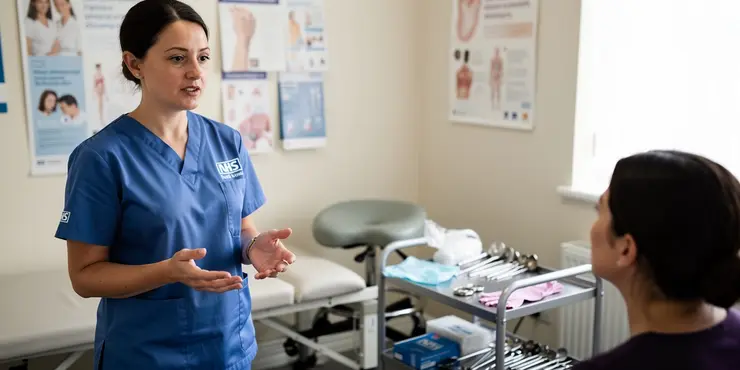
Does the womb lining test require any special preparation?
Relevance: 27%
-
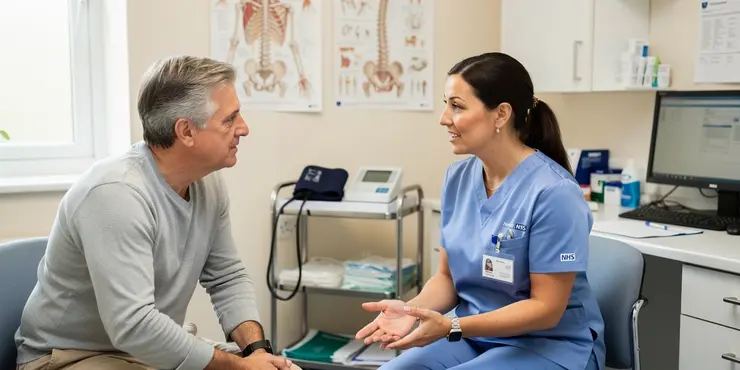
What should I do to prepare for spinal anaesthesia?
Relevance: 27%
-

Can my partner be with me during the Caesarean section?
Relevance: 22%
-
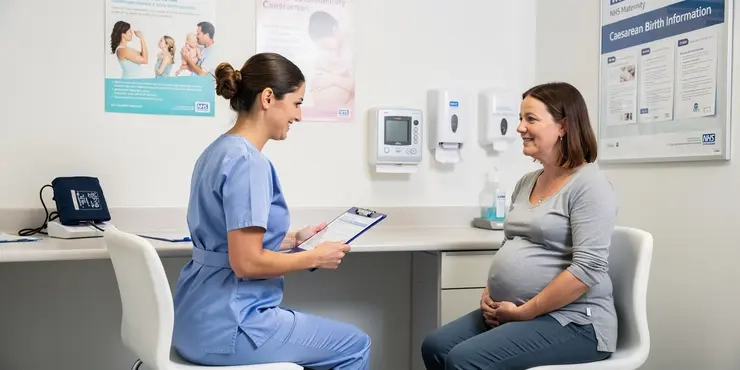
Pre operative Information for Planned Caesarean Birth
Relevance: 21%
-

Anaesthetic procedure for elective caesarean section (C section)
Relevance: 19%
-
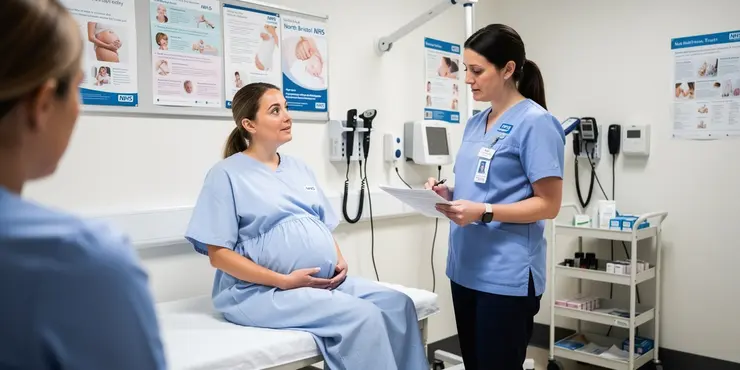
Planned caesarean section
Relevance: 18%
-

Can I breastfeed after a Caesarean birth?
Relevance: 16%
-
How do I know if my surgery is considered elective or urgent?
Relevance: 14%
-
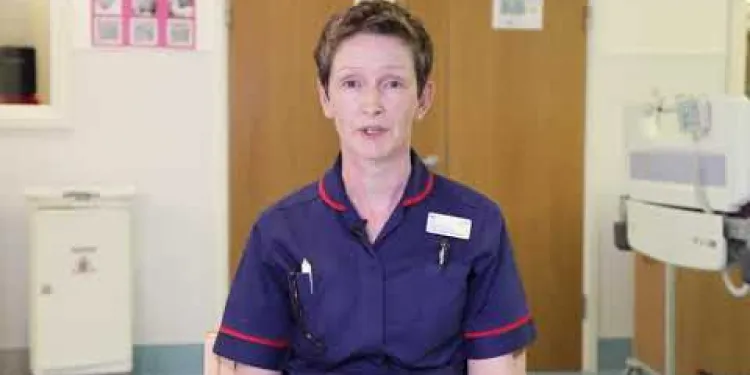
Gestational Diabetes during pregnancy
Relevance: 13%
Understanding the C-Section Procedure
A Caesarean section, often referred to as a C-section, is a surgical procedure used to deliver a baby through incisions in the mother's abdomen and uterus. Preparing for a C-section, whether planned or emergency, can help ensure a smooth delivery and recovery process.
Preparing Physically
Before your scheduled C-section, it's important to follow any instructions given by your healthcare provider. This may include dietary restrictions, such as not eating or drinking for a certain period before the surgery. You may also be advised to take specific medications or avoid certain supplements. Discuss any current medications with your healthcare provider to ensure they are safe to continue.
Physical preparation also involves packing a hospital bag with essential items. Consider including comfortable clothing, toiletries, maternity bras, and other personal items that will help you feel more at ease during your hospital stay.
Preparing Emotionally
A C-section can be an emotional experience, and it’s important to prepare mentally and emotionally. Talk to your doctor or a midwife about any concerns you may have, and consider attending antenatal classes that cover information about C-sections. Educating yourself about the procedure can help ease anxiety and make you feel more in control.
Involve your partner or support person in discussions with healthcare providers to better understand what to expect on the day of the surgery. Having a birth plan that includes preferences for the C-section process can also provide a sense of empowerment and preparation.
Planning for Recovery
Recovery from a C-section typically requires more time than a vaginal delivery, so it's crucial to plan accordingly. Arrange for support at home, whether it be through your partner, family, or friends, to help with household tasks and baby care during the initial recovery period.
Make your home conducive to post-surgery healing by setting up a comfortable recovery space with easy access to necessary items. Stock up on groceries and prepare meals in advance to ease the transition once you return home from the hospital.
Understanding NHS C-Section Protocol
In the UK, C-sections can be performed in NHS hospitals, where specific protocols are followed. Familiarise yourself with the hospital's policies where you will be delivering, including visiting hours and support person procedures. Knowing the system helps you feel more comfortable during your hospital stay.
Your healthcare team will monitor you closely before, during, and after the procedure to ensure the well-being of both you and your baby. They will also guide you on pain management and the use of any prescribed medications.
Final Thoughts
Preparing for a C-section involves physical, emotional, and logistical elements to ensure both mother and baby are comfortable and safe. By following medical advice, arranging for support, and understanding the process, you can facilitate a positive birthing experience. Remember to reach out to your healthcare provider with any questions or concerns you might have about the upcoming procedure.
Understanding the C-Section Procedure
A C-section is an operation to help deliver a baby through cuts in the mother's belly and womb. Getting ready for a C-section, whether it's planned or sudden, can help make sure things go well.
Preparing Physically
Before your planned C-section, it's important to follow your doctor’s advice. You might need to stop eating or drinking for a while before the operation. You may also need to take certain medicines or avoid some vitamins. Talk to your doctor about any medicines you are taking to make sure they are okay.
Get ready by packing a hospital bag. Bring things like comfy clothes, toiletries, and maternity bras that make you feel nice while you are at the hospital.
Preparing Emotionally
A C-section can bring up lots of feelings, so it's good to prepare your mind. Talk to your doctor or a midwife about any worries. Going to classes about C-sections can also help you feel better. Knowing more about the operation can make you feel less scared and more ready.
Have your partner or support person talk with the doctor too. They can help you understand what will happen on the day of the surgery. Creating a birth plan with your wishes for the C-section can make you feel more in control.
Planning for Recovery
Getting better after a C-section takes longer than after a normal delivery, so plan ahead. Arrange help at home from your partner, family, or friends to do household chores and take care of the baby during recovery.
Make your home a nice place to heal by setting up a cosy recovery area with things you need nearby. Stock up on food and make meals before you go to the hospital to make coming home easier.
Understanding NHS C-Section Protocol
In the UK, C-sections are done in NHS hospitals where there are rules to follow. Learn about the hospital's rules, like visiting hours and who can be with you. Knowing these things can make you feel better during your hospital stay.
Your healthcare team will watch you closely before, during, and after the C-section to help you and your baby stay healthy. They will also tell you how to manage pain and use any medicines you need.
Final Thoughts
Getting ready for a C-section means looking after your body, feelings, and plans to keep you and your baby safe and happy. By listening to your doctor, arranging help, and learning about the process, you can have a better birth experience. Remember, you can always ask your doctor any questions you have about the C-section.
Frequently Asked Questions
What should I pack in my hospital bag for a C-section?
Pack comfortable clothing, toiletries, maternity pads, nursing bras, phone charger, and clothing for the baby. Include any prescribed medications and necessary paperwork.
How can I prepare my body for a C-section?
Stay hydrated, eat a balanced diet, and engage in gentle exercises if approved by your doctor. Discuss any medications or supplements with your healthcare provider.
What should I avoid eating before a C-section?
Avoid eating or drinking anything after midnight before the procedure unless instructed otherwise by your doctor. Follow pre-surgery fasting guidelines.
How should I mentally prepare for a C-section?
Learn about the procedure, talk to others who have had C-sections, practice relaxation techniques, and discuss any fears with your healthcare provider.
What questions should I ask my doctor about a C-section?
Ask about the procedure steps, recovery time, pain management, potential risks, and any specific concerns you have about your health or the baby's health.
What should I expect on the day of the C-section?
Expect pre-surgery checks, meeting with the anesthesiologist, and signing consent forms. You will also have an IV line placed and receive anesthesia.
How can I prepare my home for my return from the hospital?
Set up a recovery area with comfortable seating, easy access to essentials, and supplies for the baby. Arrange for help with household chores.
What is the recovery time after a C-section?
Expect a hospital stay of 2-4 days and a recovery period of about 6 weeks. Follow your doctor’s advice on activity restrictions and pain management.
How can I manage pain after a C-section?
Use prescribed pain medications, apply gentle pressure with a pillow when coughing or moving, and follow your doctor’s instructions on activity levels.
What kind of anesthesia is used for a C-section?
Most C-sections are performed under regional anesthesia, such as a spinal block or epidural, which numbs the lower part of the body while you're awake.
Will I be able to hold my baby immediately after a C-section?
In many cases, you can hold your baby briefly in the operating room if both you and the baby are stable. Otherwise, you can hold them in the recovery room.
How should I prepare for breastfeeding after a C-section?
Consult a lactation specialist, learn about comfortable breastfeeding positions post-surgery, and ensure you have nursing supplies ready at home.
What type of clothing should I wear after a C-section?
Wear loose, comfortable clothing with a high waist to avoid irritating the incision area. Maternity or stretchy pants and loose tops are recommended.
How can I prepare older siblings for a new baby after a C-section?
Talk to them about their new sibling, involve them in preparations, and arrange for them to meet the baby with supervision and support.
What are the potential risks of a C-section?
Risks include infection, bleeding, blood clots, and reactions to anesthesia. Discuss your specific risks with your healthcare provider.
Can my partner be present during the C-section?
In most hospitals, one support person is allowed in the operating room unless there are complications. Check the hospital's policy in advance.
What should I do if I'm feeling anxious about the C-section?
Discuss your concerns with your healthcare provider, consider counseling, and practice relaxation techniques such as deep breathing or meditation.
How can I prepare for a C-section if it's unplanned?
If unplanned, seek information from your healthcare team, communicate your concerns, and ask about immediate post-surgery care and recovery.
What items should I have ready for the baby's care after a C-section?
Ensure you have diapers, wipes, clothing, a safe sleep space, and a car seat ready. Prepare feeding supplies and a first-aid kit.
How should I adjust my diet for recovery after a C-section?
Focus on a nutritious diet rich in fruits, vegetables, lean proteins, and whole grains. Stay hydrated and consult your doctor for personalized advice.
What should I pack in my hospital bag for a C-section?
Here is a simple list of things to pack:
- Comfortable clothes to wear in the hospital.
- Toothbrush, toothpaste, and other bathroom things.
- Your phone and charger.
- Snacks you like.
- A book or something to help pass the time.
- A going-home outfit for your baby.
Ask a friend or family member to help you pack. You can make a checklist to make sure you don't forget anything. You can also ask your doctor or nurse for more ideas.
Bring clothes that are comfy, things you need to wash like your toothbrush and soap, special pads for after having a baby, bras for feeding, and a charger for your phone. Pack clothes for the baby, any medicine the doctor gave you, and important papers.
How can I get my body ready for a C-section?
Drink plenty of water, eat healthy foods, and do gentle exercises if your doctor says it's okay. Talk to your doctor about any medicines or vitamins you take.
What shouldn't I eat before a C-section?
Don't eat or drink anything after midnight before your operation. Only do this if your doctor tells you to. Follow the rules for not eating before surgery.
How can I get ready in my mind for a C-section?
A C-section is a special way to have a baby. It is a surgery. Here are some ways to feel ready in your mind:
- Learn about it: Read simple books or watch videos made for kids. They can show you what happens. Ask your doctor or nurse to explain it, too.
- Ask questions: If you have worries, talk to your doctor. They can help you understand and feel better.
- Talk to friends or family: Maybe someone you know has had a C-section. They can share their story with you.
- Stay calm: Try deep breaths or listen to gentle music. These can help you feel relaxed.
- Write down your feelings: It can help to draw or write how you feel about the C-section.
Remember, it is okay to feel nervous. By learning and talking, you will feel more ready.
Find out what happens during a C-section. Talk to people who have had one. Try to relax. Tell your doctor or nurse if you are scared.
Questions to Ask Your Doctor About a C-Section
If you need help understanding, ask these questions to your doctor. It can be good to have a family member or friend with you.
What is a C-section?
A C-section is an operation to help a baby come out of the mother's belly.
Why do I need a C-section?
Ask why you might need this operation and how it can help you and your baby.
How do I get ready for a C-section?
Find out what you need to do before the operation.
What happens during a C-section?
Ask about what will happen in the hospital when you have the operation.
What happens after a C-section?
Learn about how you will feel and what you need to do after the operation.
Are there risks?
Ask about any problems that can happen with a C-section.
How can I feel better?
Talk about how to feel better after the operation and when you can do normal things again.
What help can I get?
Find out if there are tools or people that can help you.
Ask about what will happen during the procedure, how long it will take to get better, how to deal with pain, what could go wrong, and any worries you have about your health or the baby's health.
What will happen on the day of the C-section?
Here is what will happen when you go for your C-section:
- You will go to the hospital.
- The doctors and nurses will help you get ready.
- You will get medicine, so you do not feel pain.
- You will go into a special room for the operation.
- The doctors will do the C-section to help the baby come out.
- After the baby is out, you will move to a room to rest.
If you are feeling nervous, it is okay to ask questions. You can also use things like calming music or breathing exercises to help you feel better.
Before the operation, doctors will do some checks to make sure you are ready. You will meet a special doctor who gives you medicine to sleep during the operation. You will also sign a paper to say you agree to the operation. The nurses will give you a small needle in your arm so you can get medicine, and then you will go to sleep.
How can I get my home ready for when I come back from the hospital?
Here is a simple guide to help you prepare:
- Clean Up: Make sure your home is tidy. This will help you feel relaxed.
- Move Things: Put important things like snacks and water in easy-to-reach places.
- Buy Supplies: Get things you might need, like medicine or bandages, before you go to the hospital.
- Safety First: Check if there are any things you could trip over and move them.
- Ask for Help: See if someone can help you with cleaning or cooking when you get back.
Using pictures or labels can make it easier to remember what to do. You can also ask a friend or family member for help in getting ready.
Create a comfy space to help you relax. Make sure you have a nice chair, things you need nearby, and all the baby stuff ready. Ask someone to help you with cleaning and tidying up the house.
How long does it take to get better after a C-section?
You might need to stay in the hospital for 2 to 4 days. It can take about 6 weeks to feel better. Listen to your doctor about what you can and can't do and how to deal with pain.
How can I feel better after a C-section?
Having a C-section can be painful, but there are ways to help you feel better. Here are some tips:
- Take your medicine: The doctor will give you pills to help with the pain. Make sure to take them as the nurse or doctor says.
- Rest: Try to rest as much as you can. Your body needs time to heal after having a baby.
- Move carefully: When getting out of bed, roll to your side first, then push up with your arms. This can hurt less.
- Ask for help: It is okay to ask family or friends to help you with things like carrying the baby or doing chores.
- Use pillows: Putting a pillow under your belly or behind your back when you sit can feel better.
If the pain is too much or does not get better, tell your doctor. It’s important to get help when you need it.
You can use things like a timer to remember when to take medicine, or write down how you feel each day to tell the doctor. This can make it easier to get the help you need.
Take the medicine your doctor gave you for pain. When you cough or move, hold a soft pillow against your body to feel better. Listen to your doctor about what you can do.
What type of medicine is used to stop pain during a C-section?
A C-section is when a doctor helps a baby come out by making a cut in the mom's tummy. Doctors use special medicine to make sure the mom does not feel pain during this. This is called anesthesia.
There are different types of pain medicine:
- Spinal Block: This medicine goes into the back and makes the tummy feel numb.
- Epidural: This is another type of medicine that goes into the back and helps stop pain.
- General Anesthesia: This medicine makes the person go to sleep for a little while during the operation.
The doctor will decide what medicine is best to use.
If you need help understanding, you can ask someone to explain this to you. Pictures and videos might also help you understand better.
Most C-sections are done with special medicine that makes you numb from the waist down. This is called a spinal block or epidural. It keeps you awake, but you won’t feel pain in the lower part of your body.
Can I hold my baby right after a C-section?
If you have a C-section, you might not be able to hold your baby right away. The doctors will first check that both you and the baby are okay.
Sometimes, they give the baby to you quickly, but other times it might take a little longer.
It's important to ask your doctor when you can expect to hold your baby, and let them know you want to hold your baby as soon as it is safe.
If you are worried, you can ask a nurse or a doctor before your C-section.
In lots of cases, you can hold your baby for a short time in the operating room if you and the baby are okay. If not, you can hold your baby in the recovery room instead.
How can I get ready to breastfeed after a C-section?
If you had a C-section and want to breastfeed your baby, here are some simple steps to help:
- Ask for help: Talk to a nurse or breastfeeding expert. They can show you how to hold your baby and help you start breastfeeding.
- Use pillows: Place pillows around you to make breastfeeding more comfortable.
- Stay close to your baby: Keep your baby near you so you can feed them often.
- Drink and rest: Drink lots of water and try to rest whenever you can to help your body heal.
If you find it hard or have questions, ask your doctor or nurse for advice. They are there to help you.
Talk to a breastfeeding helper, learn how to sit or lie down when feeding your baby after surgery, and make sure you have all the things you need for feeding at home.
What clothes should I wear after a C-section?
Here are some ideas for clothes to wear after a C-section:
- Wear loose and soft clothes. They are more comfortable.
- Choose clothes that do not press on your tummy.
- Wear high-waisted underwear. They keep the band away from your wound.
- Try button-up shirts. They are easy to put on and take off.
You may also want to use a support band. It can help you feel more comfortable.
It is important to feel comfy and take care of your body.
Wear clothes that are loose and comfy. High-waisted pants are good because they won't hurt the cut area. Maternity pants or stretchy pants and loose tops work well.
How can I help older brothers and sisters get ready for a new baby after a C-section?
Talk to your child about their new baby brother or sister. Let them help get ready for the baby. Plan for them to meet the baby while you are there to support them.
What could be the risks of having a C-section?
There are some risks to know about. You might get an infection, bleed, have blood clots, or react to the medicine that makes you sleep during the operation. Talk to your doctor about your own risks.
Can my partner be with me during the C-section?
Most hospitals say one person can be with you in the operating room. This person is there to help you. But if there are problems, they might not be able to come in. Ask the hospital what their rules are before you go.
What can I do if I feel worried about the C-section?
Talk to your doctor about your worries. You can also think about talking to a counselor. Try to relax by breathing deeply or doing meditation. These might help you feel better.
How can I get ready for a surprise C-section?
If you did not plan for surgery, talk to your doctors and nurses. Tell them how you feel. Ask them what to do after surgery to get better.
What things do I need for the baby's care after a C-section?
Here is a list of things you will need to take care of your baby:
- Diapers: You will need lots of diapers.
- Baby Wipes: These are for cleaning your baby.
- Baby Clothes: Soft clothes to keep your baby warm.
- Bottles and Formula: If you are not breastfeeding, you will need bottles and formula.
- Blankets: To keep your baby cozy and warm.
- Baby Bed: A safe place for your baby to sleep, like a crib or bassinet.
- Car Seat: You need this to take your baby home safely in the car.
It's a good idea to ask for help if you need it. Ask family or friends to help you get ready. You can also watch videos or read books about taking care of a baby. These can show you what to do.
Make sure you have these things ready for a baby:
- Diapers: These are for when the baby needs changing.
- Wipes: Use these to clean the baby.
- Clothing: Dress the baby in comfy clothes.
- Safe place to sleep: The baby needs a safe bed to sleep in.
- Car seat: You'll need this to travel in the car safely with the baby.
- Feeding supplies: Get bottles and other things for feeding time.
- First-aid kit: This is important for any small cuts or accidents.
What should I eat to get better after a C-section?
Eat healthy foods like fruits, vegetables, lean meats, and whole grains. Drink plenty of water. Talk to your doctor for advice just for you.
Useful Links
This website offers general information and is not a substitute for professional advice.
Always seek guidance from qualified professionals.
If you have any medical concerns or need urgent help, contact a healthcare professional or emergency services immediately.
Some of this content was generated with AI assistance. We’ve done our best to keep it accurate, helpful, and human-friendly.
- Ergsy carfully checks the information in the videos we provide here.
- Videos shown by Youtube after a video has completed, have NOT been reviewed by ERGSY.
- To view, click the arrow in centre of video.
- Most of the videos you find here will have subtitles and/or closed captions available.
- You may need to turn these on, and choose your preferred language.
- Go to the video you'd like to watch.
- If closed captions (CC) are available, settings will be visible on the bottom right of the video player.
- To turn on Captions, click settings .
- To turn off Captions, click settings again.
More Items From Ergsy search
-

How should I prepare for a C-section?
Relevance: 100%
-

Is a C-section a common procedure in the UK?
Relevance: 69%
-

Will I be awake during a C-section?
Relevance: 68%
-

What are the risks associated with a C-section?
Relevance: 66%
-

Are there any dietary restrictions before a C-section?
Relevance: 65%
-

How long will I stay in hospital after a C-section?
Relevance: 65%
-

Can my partner be present during the C-section?
Relevance: 61%
-

How can I manage pain after a C-section?
Relevance: 49%
-

What is the recovery process like after a C-section?
Relevance: 40%
-

Your Caesarean birth
Relevance: 39%
-

How do I prepare for a mammogram?
Relevance: 39%
-

How should I prepare for a facelift?
Relevance: 37%
-

Can exercises help with labor preparation?
Relevance: 37%
-

Why might a Caesarean birth be necessary?
Relevance: 36%
-

How do I prepare for a tribunal hearing?
Relevance: 36%
-

Can I have a natural birth after a Caesarean section?
Relevance: 35%
-

How do I prepare for hip replacement surgery?
Relevance: 34%
-

How should I prepare for a Botox appointment?
Relevance: 34%
-

What is a Caesarean birth?
Relevance: 33%
-

How can I prepare for my first Hyrox competition?
Relevance: 32%
-

How can I prepare for the DVSA Theory Test?
Relevance: 32%
-

How soon should I prepare for the 2026 tax changes?
Relevance: 32%
-

Crown Court - Preparing to come to court
Relevance: 32%
-

How long does it take to recover from a Caesarean birth?
Relevance: 32%
-

How should I prepare for a womb lining test?
Relevance: 32%
-

How should I prepare for a hair transplant in Turkey?
Relevance: 31%
-

UK Adoption Journey | What we did to prepare | Stage One Update
Relevance: 30%
-

NHS Winter Preparedness Plans Unveiled Amid Rising Seasonal Pressures
Relevance: 29%
-
Is pre-tanning in a sunbed a good way to prepare my skin for sun exposure?
Relevance: 29%
-

How can I prepare for an eviction court hearing?
Relevance: 28%
-

Having a Caesarean Section
Relevance: 27%
-

Does the womb lining test require any special preparation?
Relevance: 27%
-

What should I do to prepare for spinal anaesthesia?
Relevance: 27%
-

Can my partner be with me during the Caesarean section?
Relevance: 22%
-

Pre operative Information for Planned Caesarean Birth
Relevance: 21%
-

Anaesthetic procedure for elective caesarean section (C section)
Relevance: 19%
-

Planned caesarean section
Relevance: 18%
-

Can I breastfeed after a Caesarean birth?
Relevance: 16%
-
How do I know if my surgery is considered elective or urgent?
Relevance: 14%
-

Gestational Diabetes during pregnancy
Relevance: 13%


